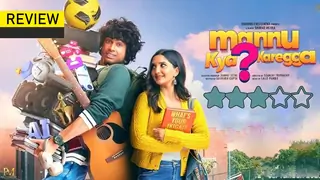| may be if i wud have written sth by myself than ekta lovers over here wud have killed me!!!!!!!!!!! but what if some authentic source says this??????? Here is the article!!!!!!!!!!!!!! Just portraying my feelings and my anger on ekta.............. i m glad! saap bhi mar gaya aur lathi bhi nahi tuti 😃 New Delhi, Feb 4 (IANS) Mills & Boon and Cinderella-type romances, intrigues within large joint families and infidelity are the dominant themes of television soaps today, giving the go by to originality and creativity which were the hallmarks of earlier riveting dramas like 'Hasratein', 'Saans' and 'Sailaab'. Now, one gets to see repetitive and socially regressive serials like 'Sinndoor Tere Naam Ka', 'Kahaani Ghar Ghar Kii' and 'Kajjal', to name just a few with similar threads being beamed on every channel. All have lavish sets, garish costumes, loud make-up and family intrigues, which though they keep the audience - mostly women - glued to the idiot box, are far removed from reality. The popularity of this new wave has made it difficult for creative directors to showcase their talent with anything new and innovative. 'The intelligent class consists of only two percent of the total viewership. The rest of the 98 percent is digging into the soaps, which we term as regressive. And if you tell the audience that their favourite serial is regressive, chances are they will get into a heated argument with you,' said Ajay Sinha, the talented director of 'Hasratein' and 'Astitva'. 'After making 'Astitva' I was out of job for eight months? I was sitting at home doing nothing, can you imagine? Those eight months were like a punishment for making a serial like 'Astitva',' said Sinha. Sinha is one of the older players of the golden era of TV and churned serials, which were widely watched, including 'Samay'. 'When I was out of work, my assistants were forced to look for other options. They approached other producers for work and the first question my assistants were asked was, 'Will you be able to make trendy serials after being associated with something like 'Astitva'?'' Sinha added. The serial was about an older woman falling in love with a younger man. Prior to the arrival of the TRP ratings system, the television industry kept its moorings with morality through dramas which were closely linked to reality. A decade ago, there weren't too many players in the market, but there was a satisfactory balance between artistic endeavour and commercial success. In fact, with the arrival of satellite TV, big players like Zee and Sony maintained their quality in terms of content with widely appreciated shows like -- 'Tara', 'Hasratein, 'Tanha', 'Banegi Apni Baat', 'Thoda Hai Todhe ki zaroorat Hai'. But with the arrival of Ekta Kapoor and her saas-bahu formula, the storylines changed dramatically. Her serials seemed to have hit the bull's eye as far as popularity is concerned. She revolutionised the TV medium with 'Kyunki Saas Bhi Kabhi Bahu Thi', 'Kahaani Ghar Ghar Kii', 'Kasautii Zindagi Kay' -- family soaps spinning around one female protagonist, and which continue till date with their never-ending stories spanning generations. Her serials are real money-spinners and top on the TRP ratings. Ironically, others in the business too started toeing the same line in order to keep abreast. Zee's 'Sinndoor Tere Naam Ka', 'Ghar Ki Laxmi Betiyaan', 'Saat Phere', 'Mamta' and 'Banoo Mein Teri Dulhan' are few examples. 'The whole trend has changed over a period of time. Saas-bahu sagas have survived. People are watching them. I feel it's a personal choice - like our preference for reading a certain kind of book. I cannot deny that there is certainly a segment that find these serials regressive.' When the saas-bhau sagas started declining in ratings, Ekta rolled out new recipes - Cinderella stories interspersed with Mills & Boon romance - 'Kahiin To Hoga', 'Kyaa Hoga Nimmo Ka', 'Karam Apna Apna', 'Kasamh Se' are the best examples of the new trend, which are now being duplicated in other channels too. And these serials run for years. However, if the female protagonist is removed, the serial will fall flat as the women are the life-lines of the serials. 'I understand the changing times. Once upon a time I used to rule television but today there is no place for me. Its like a catering business - I have to give what the customer demands. If I try to give him something new, he will get angry,' said Ravi Rai, the maker of 'Sparsh'. 'Secondly, lots of money is involved. Once you get heavily paid, you don't want to break the popularity trend because you are responsible for the serial's downfall. And you don't want to change the winning formula,' said Rai. Rai has some of the best dramas to his credit -- 'Sailaab', 'Teacher' and Thoda Hai Thode Ki Zaroorat Hai' to name a few. 'There are always two kinds of people - first the general masses who love to follow the same path, and the other who carve new paths for themselves. If you try to show the first category something new, they get irritated because they cannot relate to it. That's why most of the serials use the same formula so that viewers don't have problems in identifying with them,' said Sinha. The shift from the occasional dose of drama to a regular supply of serials is certainly having its implication. Today TV soaps have become a part of the rhythm of everyday life for many people. But, despite the deluge of serials, people end up craving for old ones like 'Gul Gulshan Gulfam', 'Fauji', 'Circus', 'Nukkad', 'Farmaan', 'Flop Show', 'Jeevan Rekha', 'Mungeri Lala Ke Haseen Sapne', 'Malguid Days', 'Talaash', 'Udaan', 'Yeh Jo Hai Zindagi', 'Karamchand', 'Khandan', 'Tamas', 'Dard' 'Saans' and 'Dard'. Most were based on every-day life. In fact, 'Junoon', 'Shanti, 'Swaabhiman', which were considered ahead of their time, were not as bad and regressive as the current ones. Television is one of the best sources of entertainment but it is destroying the psyche of common people by resorting to unrealistic stories and advocating oppressive views. It is sad considering the immense scope there is in creating interesting stories around burning issues like legal, medical and social ones. |
| Copyright Indo-Asian News Service |



















